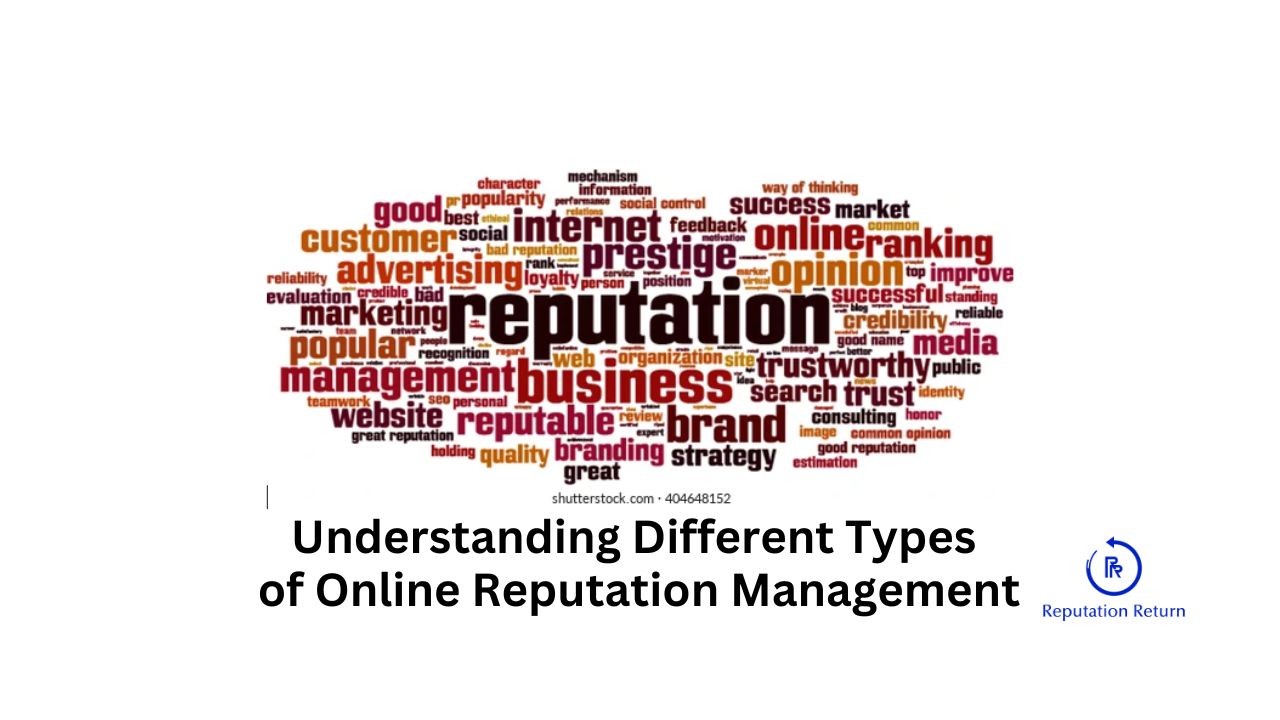Managing your online reputation is essential for business owners and individuals alike. The rise of social media, review sites, and other online platforms means that one negative comment can significantly harm your reputation and impact your success. This is where online reputation management (ORM) becomes crucial.
What is Online Reputation Management (ORM)?
Online Reputation Management (ORM) involves monitoring, influencing, and improving an individual’s or a business’s reputation on the Internet. With the increase in online platforms like social media, business directories, and review sites, maintaining a positive online reputation has become more critical than ever. A negative online reputation can damage credibility, trust, and success. Therefore, it’s essential to understand the different types of ORM strategies and how they can be implemented to maintain a positive online presence.
SEO-Based Online Reputation Management
Search engine optimization (SEO) focuses on optimizing web pages to rank higher in search engine results (SERPs). This involves using specific keywords, creating high-quality content, and building backlinks to improve a website’s visibility. SEO-based ORM uses these strategies to enhance an individual’s or a business’s online reputation.
For example, if negative search results appear for your business, creating high-quality content targeting the same keywords as the negative content can help push down the negative results. This might include blog posts, press releases, and other content types that showcase your strengths and values. Additionally, creating backlinks to this positive content helps boost its search engine ranking, further pushing down negative content.
Content-Based ORM
Content-based ORM involves creating, promoting, and managing online content to improve an individual’s or a business’s reputation. The goal is to create positive content that highlights strengths and values and promotes this content to reach the audience. This might include blog posts, articles, videos, and podcasts.
For example, an aesthetician might create blog posts about skincare tips and success stories from satisfied clients. Promoting this content through social media, email marketing, and influencer partnerships can help build a positive online reputation. Creating thought leadership content, such as in-depth guides on skincare techniques, can establish the aesthetician as an expert in the field, building trust with the audience. This is one of our ORM services.
Social Media ORM
Social media ORM involves managing an individual’s or a business’s reputation on social media platforms by monitoring, engaging, and responding to the audience. Identifying the relevant social media platforms and creating a strategy that aligns with the brand and values is crucial. This includes creating engaging content, responding to comments and reviews, and monitoring for any negative feedback.
For example, a restaurant might respond to negative reviews on social media by addressing the issues raised and offering solutions. Engaging with the audience by responding to positive comments and sharing user-generated content, such as customer photos and testimonials, can build strong relationships and enhance the online reputation.
Review-Based ORM
Review-based ORM focuses on managing an individual’s or a business’s reputation on review sites such as Yelp, Google Reviews, and TripAdvisor. Reviews play a critical role in the decision-making process for many consumers, so managing these reviews is essential.
For instance, a hotel might monitor review sites for negative feedback and respond promptly and professionally to address the concerns. Encouraging satisfied customers to leave positive reviews by providing excellent customer service can help build social proof and attract new customers.
PR-Based ORM
PR-based ORM involves managing an individual’s or a business’s reputation through public relations strategies. This includes creating press releases, pitching stories to journalists, and building relationships with the media to generate positive coverage.
For example, a tech company might issue press releases about new product launches or industry awards. Building relationships with journalists can result in positive media coverage, enhancing the company’s reputation. Having a crisis communication plan in place ensures that the company can respond quickly and effectively to any negative news or social media backlash, minimizing damage to the reputation.
Benefits of Online Reputation Management
Effective ORM offers numerous benefits, including increased trust and credibility, enhanced brand image, improved customer acquisition and retention, and better search engine rankings. It also aids in crisis management, increases employee engagement, provides a competitive advantage, and ensures long-term success.
For example, a proactive ORM strategy for a restaurant can involve monitoring online reviews, engaging with customers on social media, and creating high-quality content that showcases the restaurant’s unique offerings. This can lead to higher search engine rankings, more positive reviews, and increased customer loyalty, ultimately contributing to the restaurant’s long-term success.
Online Reputation Management is crucial for building and maintaining a positive online reputation. By implementing the strategies outlined above, individuals and businesses can effectively manage their online presence and build trust with their audience. Whether it’s through SEO, content creation, social media engagement, review management, or public relations, a variety of strategies can be used to manage and enhance an individual’s or business’s online reputation. Taking a proactive approach to ORM ensures that your reputation is protected and can lead to long-term success in today’s digital world.
Would you like to talk before ordering a service? Let’s talk >>>

